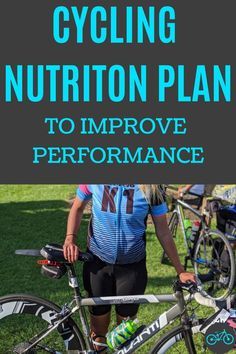
When it comes to cycling, nutrition plays a vital role in optimizing performance on the bike. Whether you are a professional athlete or a recreational rider, fueling your body with the right nutrients can make a significant difference in your endurance, speed, and overall performance. In this article, we will explore the importance of cycling nutrition and provide some valuable tips to help you enhance your performance on the bike.
The Importance of Nutrition in Cycling
Cycling is a physically demanding sport that requires a lot of energy. The longer and more intense your rides, the more fuel your body needs. Proper nutrition helps supply the energy necessary to sustain long rides, improve muscle recovery, and enhance overall endurance. Additionally, the right nutrition can also aid in reducing muscle fatigue and improving mental focus during races and training sessions.
Macronutrients for Cyclists
Macronutrients, including carbohydrates, proteins, and fats, are the primary sources of energy for cyclists. Each macronutrient serves a specific purpose and should be consumed in appropriate proportions to meet the demands of your training and racing.
Carbohydrates
Carbohydrates are the main fuel source for cyclists as they provide quick energy. Complex carbohydrates such as whole grains, fruits, and vegetables are preferred over simple sugars as they are digested more slowly and provide a steady release of energy. Aim to consume a sufficient amount of carbohydrates before, during, and after your rides to maintain energy levels and improve recovery.
Proteins
Proteins play a crucial role in repairing and building muscles. Adequate protein intake is important for cyclists, especially during intense training periods. Good sources of protein include lean meats, fish, dairy products, and plant-based options such as legumes and tofu.
Fats
While carbohydrates are the primary source of energy during cycling, fats are an important secondary fuel source, especially during longer rides. Incorporate healthy fats from sources like nuts, avocados, and olive oil into your diet to promote optimal performance on the bike.
Hydration
Staying hydrated is paramount for cyclists. Proper hydration helps to regulate body temperature, optimize cardiovascular function, and prevent muscle cramps. It is recommended to drink water throughout your rides, especially during hot and humid conditions. Additionally, electrolyte-rich drinks can also be beneficial for replenishing essential minerals lost through sweat during prolonged rides.
Pre- and Post-Ride Nutrition
What you consume before and after your rides can significantly impact your performance and recovery. Pre-ride nutrition should focus on providing easily digestible carbohydrates to top off glycogen stores and prepare your body for the upcoming physical exertion. Consider options like a banana, oatmeal, or a whole-grain toast with nut butter. Post-ride nutrition is crucial for muscle recovery and replenishing glycogen stores. Aim to consume a combination of carbohydrates and proteins within 30 minutes after finishing your ride. This can be achieved through a recovery drink, a balanced meal, or a protein shake combined with fruits and vegetables.
Supplements for Cyclists
While a healthy and balanced diet should be the foundation of your nutrition, supplements can complement your training and help optimize performance. Some common supplements for cyclists include: Energy gels: Provide quick and easily digestible carbohydrates during long rides. Electrolyte tablets: Help replenish essential minerals lost through sweat. Protein powder: Convenient for post-ride recovery and muscle repair. Omega-3 fatty acids: Support cardiovascular health and reduce inflammation. It is important to consult with a healthcare professional or a registered dietitian before starting any new supplements to ensure they align with your specific needs and goals.
Conclusion
Cycling nutrition is not to be taken lightly if you want to optimize your performance on the bike. By paying attention to macronutrient intake, hydrating properly, and incorporating pre- and post-ride nutrition strategies, you can fuel your body effectively and enhance your endurance, speed, and overall performance. Remember, every cyclist’s nutritional needs may vary, so it is crucial to listen to your body and work with a professional to develop a nutrition plan tailored to your specific goals.

